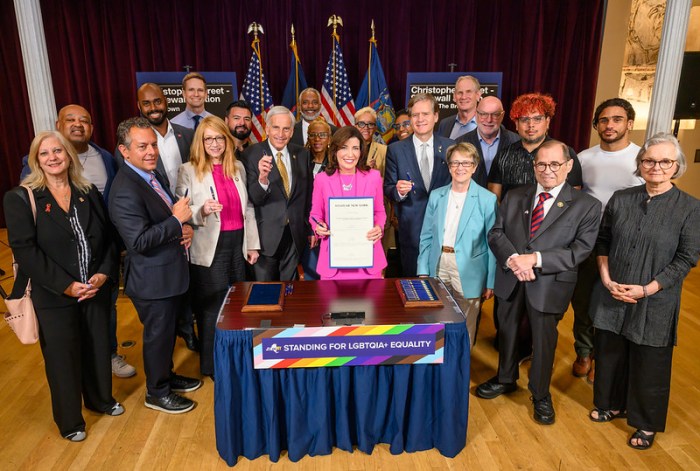Transgender teens from Florida drive further for gender-affirming care than teens from other states imposing similar restrictions on such care, according to a study published in the Journal of the American Medical Association.
The study compared the median driving hours from Florida, Texas, Utah, Arkansas, Tennessee, Oklahoma, Alabama, Montana, Idaho, and South Dakota — and the Sunshine State remained at the top with a median of nine hours of driving for 1o-to-17-year-olds to receive gender affirming care.
“The largest absolute increases in median drive times were in Florida (+8.5 hours), Texas (+6.7 hours), and Utah (+5.0 hours),” noted the study, which was funded by the National Institutes of Health and the Agency for Healthcare Research and Quality.
Florida has been, particularly as of late, a difficult and politically dangerous landscape for the LGBTQ community, especially trans individuals. The state passed a law barring gender-affirming care for youth — and although a federal judge put a hold on it while a lawsuit plays out, the state’s broad attack on the community has impacted trans youth in myriad ways: The state’s “Don’t’ Say Gay or Trans” law has further erased LGBTQ people from schools, and Florida school districts — like Orange County Public Schools — have started to issue guidance barring trans employees from sharing their pronouns and requiring individuals to use bathrooms in accordance with the sex they were assigned at birth.
The study shows that prior to recent restrictions, accessibility to clinics providing gender-affirming care was much higher — in that driving time was only roughly half an hour in Florida. However, following the restrictions, this drive time increased by 8.5 hours, decreasing accessibility.
More than 25% of clinics providing gender-affirming care are located in states with restrictions, according to the research. It is not clear whether existing clinics can meet the needs of out-of-state patients, researchers noted.
The right to gender-affirming care, aside from being at the forefront of many political discussions, especially with the campaigning for the next presidential elections, is one that is necessary for the health and safety of transgender youth.
“Access to developmentally appropriate medical and social services for transgender youths is associated with mental health benefits and decreased suicidality,” reported the study.



































